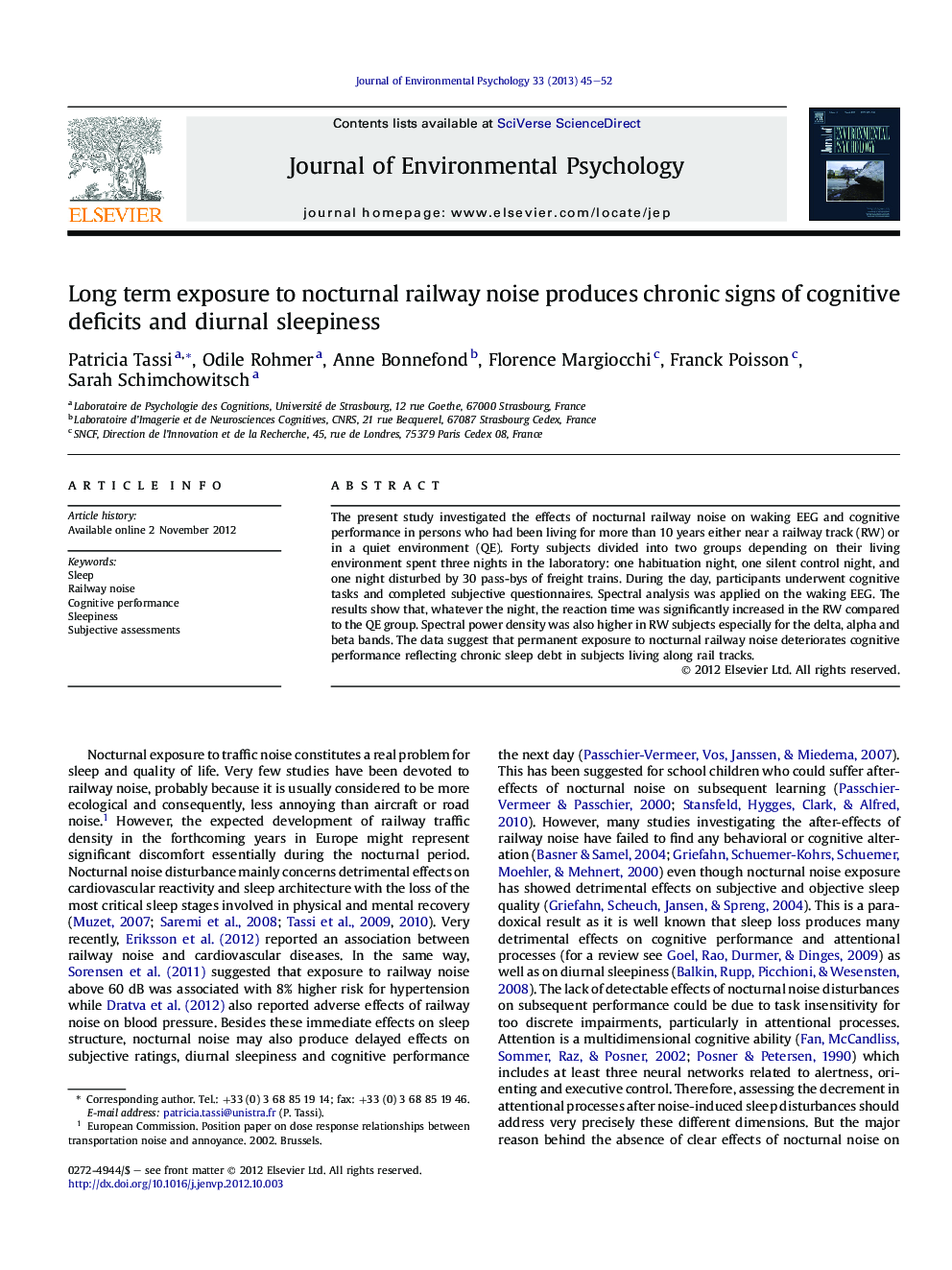| Article ID | Journal | Published Year | Pages | File Type |
|---|---|---|---|---|
| 885700 | Journal of Environmental Psychology | 2013 | 8 Pages |
The present study investigated the effects of nocturnal railway noise on waking EEG and cognitive performance in persons who had been living for more than 10 years either near a railway track (RW) or in a quiet environment (QE). Forty subjects divided into two groups depending on their living environment spent three nights in the laboratory: one habituation night, one silent control night, and one night disturbed by 30 pass-bys of freight trains. During the day, participants underwent cognitive tasks and completed subjective questionnaires. Spectral analysis was applied on the waking EEG. The results show that, whatever the night, the reaction time was significantly increased in the RW compared to the QE group. Spectral power density was also higher in RW subjects especially for the delta, alpha and beta bands. The data suggest that permanent exposure to nocturnal railway noise deteriorates cognitive performance reflecting chronic sleep debt in subjects living along rail tracks.
► Reaction time is chronically elevated in persons living near railway tracks. ► Diurnal attention is decreased in persons living alongside railway tracks for a long time. ► Daytime alertness is decreased in people living near railway tracks. ► Persons living alongside railway tracks are not aware of their chronic cognitive deficits.
